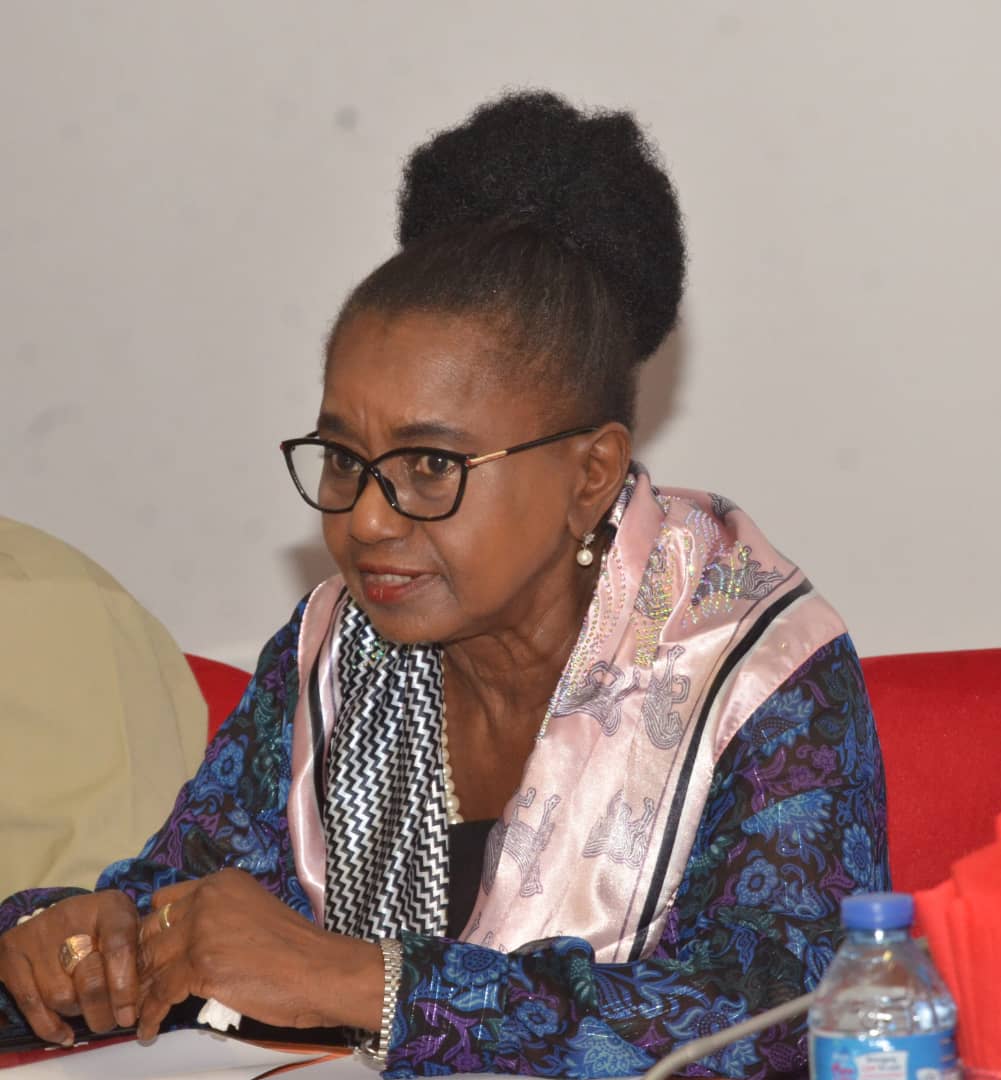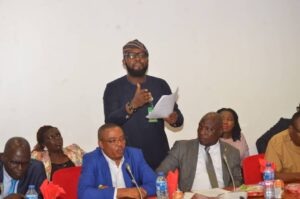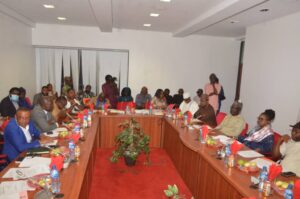
By Fatima Saka
…as lawmakers frown at staffing shortfalls, unpaid interns, and delay in waiver implementation
The Nigerian Senate, through its Committee on Health, has directed the immediate reinstatement of three disengaged medical consultants at the National Hospital, Abuja, following a heated session marked by concerns over unfair treatment, staffing shortages, and looming industrial unrest.

The directive, championed by the Chairman of the Senate Committee on Health, Senator Dr. Ipalibo Harry Banigo, on Wednesday in Abuja, after the lawmakers condemned the hospital management’s decision to disengage three long-serving consultants, Dr. Wachap (Radiologist), Dr. Weke (Urologist), and Dr. Fernandes (Obstetrician/Gynecologist), despite Nigeria’s critical shortage of healthcare professionals.


The Deputy Minority Leader, Senator Kamorudeen Oyewumi, moved a motion that was unanimously adopted by the committee to ensure the immediate reinstatement of the consultants and regularization of their status.
“This committee should give a directive that these people who have not been paid should be paid their salary immediately. This should be the resolution of this committee,” Senator Oyewumi declared, calling the disengagement senseless and detrimental to public healthcare.
Lawmakers questioned the justification by National Hospital management, which claimed the affected doctors were no longer needed due to sufficient staff strength. This claim was sharply contradicted by firsthand observations of overstretched departments, particularly the antenatal ward, where patients reportedly “fell over each other” due to a lack of attending doctors.
Senator Banigo and other senators pressed the hospital management for answers, especially over the inconsistency in claims of performance assessment and staff sufficiency.
“We do not have enough consultants in radiology, urology, or obstetrics and gynecology. These are critical departments. The decision to remove three specialists, despite repeatedly renewing their appointments, is unjustifiable,” said Senator Banigo.
The committee also lambasted the hospital for failing to request new waivers for 2025, even after receiving approval for recruitment in 2024, a process which is yet to be concluded due to pending clearance from the Federal Character Commission.
Adding to the crisis, the Senate was informed that several medical interns have gone unpaid, a situation attributed to the continued reliance on the 2024 budget provisions for non-regular allowances. The Director of Finance, Mr. Hassan Danjuma, said the federal government was yet to release 2025 budgetary funds for such allowances.
Senators stressed the urgent need to avoid an industrial strike at the National Hospital, which they described as a “flagship” institution serving millions across the country.
“This hospital is the last resort for many ordinary Nigerians. Shutting it down over the unjust dismissal of three doctors would be catastrophic,” warned Senator Yohanna, urging both the hospital and the Ministry of Health to prioritize resolving the matter swiftly.
The committee resolved that:
1. The three consultants must be reinstated within two weeks.
2. Their unpaid salaries must be settled without further delay.
3. The National Hospital must submit an updated waiver request to the Ministry of Health to cover its staffing needs.
4. The Ministry of Health must expedite the implementation of the waiver process and conduct follow-up monitoring.
5. The Federal Ministry of Finance should release the 2025 budgetary provision for non-regular allowances to enable prompt payment of interns.
READ ALSO: FG, Jigawa State Forge Partnership to Boost Sugar Production, Economic Growth in Nigeria
CIGG Raises Alarm Over Tenure Extension in Customs, Cites Corruption, Revenue Losses
The Chairman of the Nigerian Medical Association (NMA) FCT Chapter, Dr. Ayogu Emeka, who spoke at the session, praised the Senate’s intervention, describing it as “timely and lifesaving.”
The Senate’s decisive stance is seen as a pushback against bureaucratic inertia that has deepened Nigeria’s health sector brain drain and undermined morale among the country’s overstretched medical professionals.





